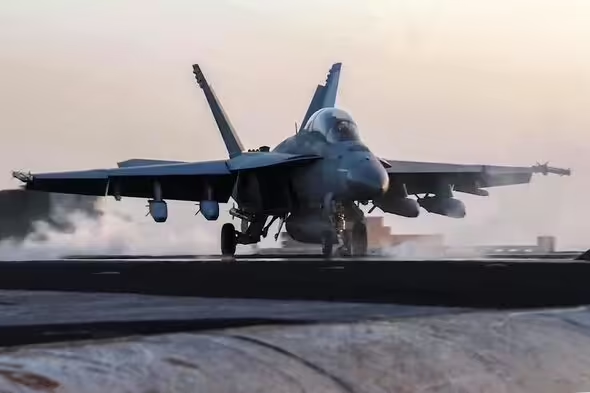Former Saudi Intelligence Chief: Kingdom Disappointed with Iran as Houthi Threat Grows

Yemen Monitor/London/Exclusive:
Prince Turki al-Faisal, former Saudi intelligence chief and diplomat, expressed the Kingdom’s disappointment with the way Iran is aiding the Houthis.
Speaking at Chatham House in London on Saturday, he called for more international action to prevent such assistance, saying that the “precision strikes” carried out by the U.S. and British navies on Houthi positions in the Red Sea should be more effective.
“We have seen EU and US fleets deployed along the Red Sea coast, and more can be done there to prevent the supply of weapons reaching the Houthis from Iran,” he added.
“Pressure on Iran by the international community can have a positive impact on what the Houthis can do in launching these missiles and drones to strike international trade.”
Al-Faisal claimed that Tehran, by continuing to interfere in Arab countries such as Lebanon, Syria, Iraq, and Yemen, as well as in Palestine, has not fulfilled its side of the diplomatic deal struck between Iran and Saudi Arabia in China two years ago.
“The Houthis are now holding the world hostage at the entrance of Bab el-Mandeb Strait to the Red Sea, yet Iran does not appear to be able to do anything even if it wanted to, and the Kingdom expected Iran to be more open in showing not only to us but to others that it can be a positive factor in securing stability and removing differences not only with Saudi Arabia but with us all.”
Al-Faisal said it was unclear whether the Iranians were able to control the Houthis, and the world would be in trouble if they could not.
Saudi Arabia has not joined the US military strikes because it says it is pursuing a diplomatic track to form a national government in Yemen.
US Fifth Fleet commander in the Middle East, Admiral George Wikoff, said the intermittent strikes by the US and Britain on Houthi positions along Yemen’s coast have not yet led to the return of commercial shipping.
The attacks have caused a 50% reduction in ship traffic through the Red Sea, prompting shipping companies to start diverting ships around Africa, adding 11,000 nautical miles and $1 million in fuel costs to the voyages.
Houthi attacks have continued despite multiple strikes by the US and Israel against positions on the Yemeni coast in recent months.





